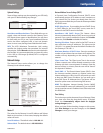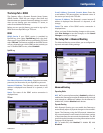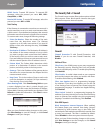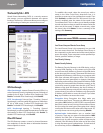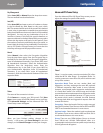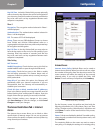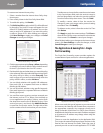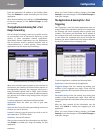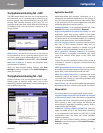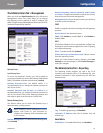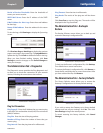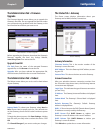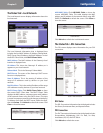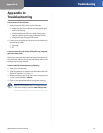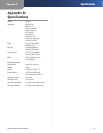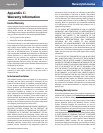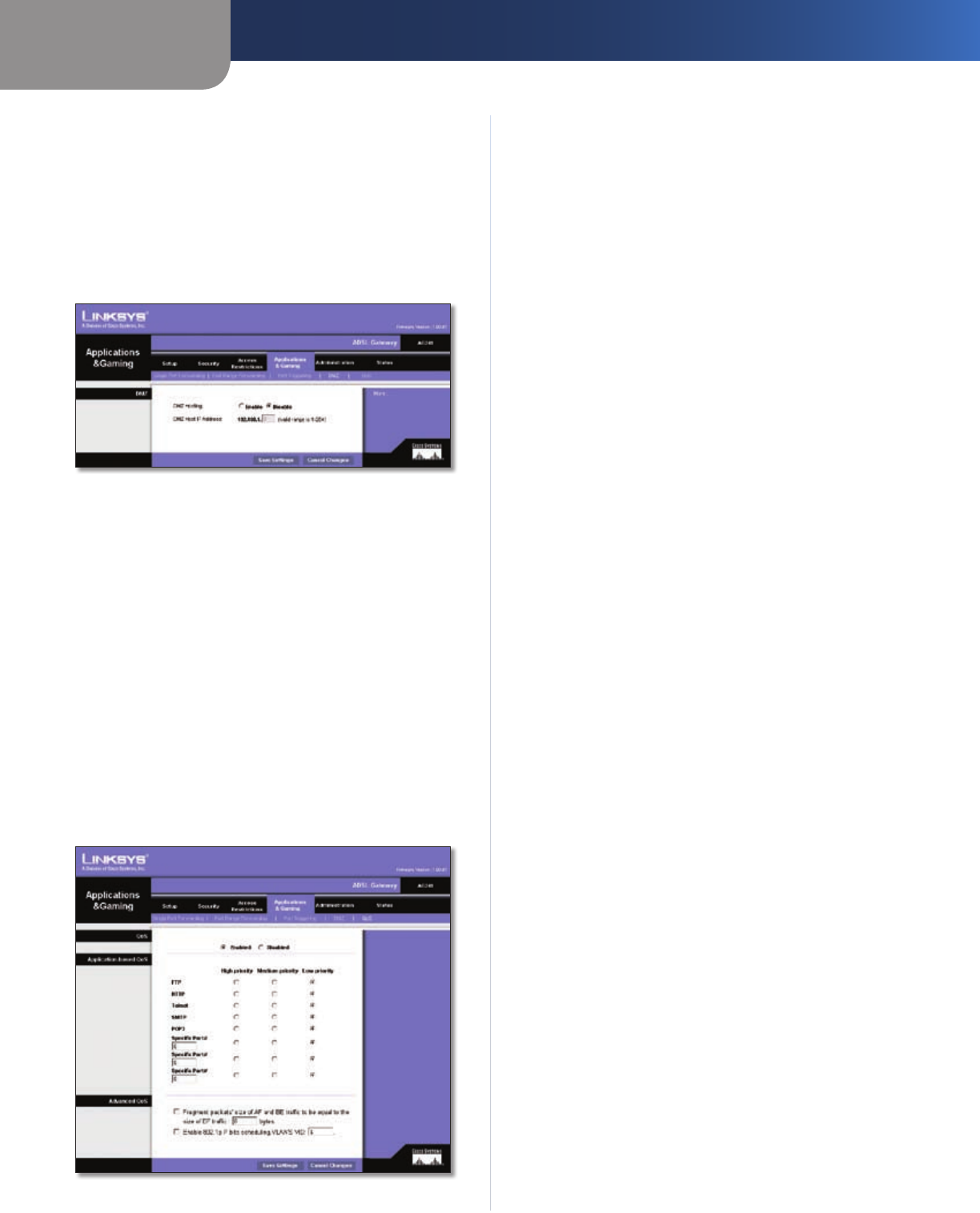
Chapter 2
Configuration
13
SubProduct
The Applications & Gaming Tab > DMZ
The DMZ screen allows one local user to be exposed to
the Internet for use of a special-purpose service such as
Internet gaming and videoconferencing through DMZ
Hosting. DMZ hosting forwards all the ports for one
computer at the same time, which differs from Port Range
Forwarding, which can only forward a maximum of 10
ranges of ports.
Applications & Gaming > DMZ
DMZ Hosting This allows one local user to be exposed
to the Internet for use of a special-purpose service such
as Internet gaming and videoconferencing. To use this
feature, select Enabled. To disable DMZ , select Disabled.
DMZ Host IP Address To expose one computer, enter
the computer’s IP address.”
When you have finished making changes, click Save
Settings to save the changes, or click Cancel Changes to
undo your changes.
The Applications & Gaming Tab > QoS
Quality of Service (QoS) ensures better service to high-
priority types of network traffic, which may involve
demanding, real-time applications, such as Internet phone
calls or videoconferencing.
Applications & Gaming > QoS
Application-based QoS
Application-based QoS manages information as it is
transmitted and received. Depending on the settings of
the QoS screen, this feature will assign information a high
or low priority for the five preset applications and three
additional applications that you specify.
Enabled/Disabled To use application-based QoS, select
Enabled. Otherwise, keep the default, Disabled.
High priority/Medium priority/Low priority For each
application, select High priority (traffic on this queue
shares 60% of total bandwidth), Medium priority (traffic on
this queue shares 18% of total bandwidth), or Low priority
(traffic on this queue shares 1% of total bandwidth).
FTP (File Transfer Protocol) A protocol used to transfer
files over a TCP/IP network (Internet, UNIX, etc.). For
example, HTML pages created for a website on a local
machine are typically uploaded to a web server via FTP.
HTTP (HyperText Transport Protocol) This protocol’s
main function is to establish a connection with a web
server and transmit HTML pages to the client web
browser.
Telnet This terminal emulation protocol allows a user at
a terminal or computer to log onto a remote device and
run a program.
SMTP (Simple Mail Transfer Protocol) An e-mail protocol
that defines the message format and the message transfer
agent (MTA), which stores and forwards the mail.
POP3 (Post Office Protocol 3) A standard mail server
commonly used on the Internet. It provides a message
store that holds incoming e-mail and attachments until
users log on and download it.
Specific Port# You can add three additional applications
by entering their port numbers in the Specific Port# fields.
Advanced QoS
This setting allows you to specify traffic queue priority.
Fragment packet’s size of AF and BE traffic to be equal
to the size of EF traffic Select this option to fragmentize
the packet sizes for AF (Assured Forwarding) and BE (Best
Effort) queues so that it will increase the efficiency for
transporting EF (expedited forwarding) queues. Enter a
range between 68-1492 bytes.
Enable 802.1p P bits scheduling VLAN’s VID Select this
option to enable 802.1p P bits classification scheduling
in the appropriate VLAN based on IEEE 802.1Q VLAN
identification. Enter the VLAN VID (VLAN Identifier)
number in the field.
When you have finished making changes, click Save
Settings to save the changes, or click Cancel Changes to
undo your changes.



